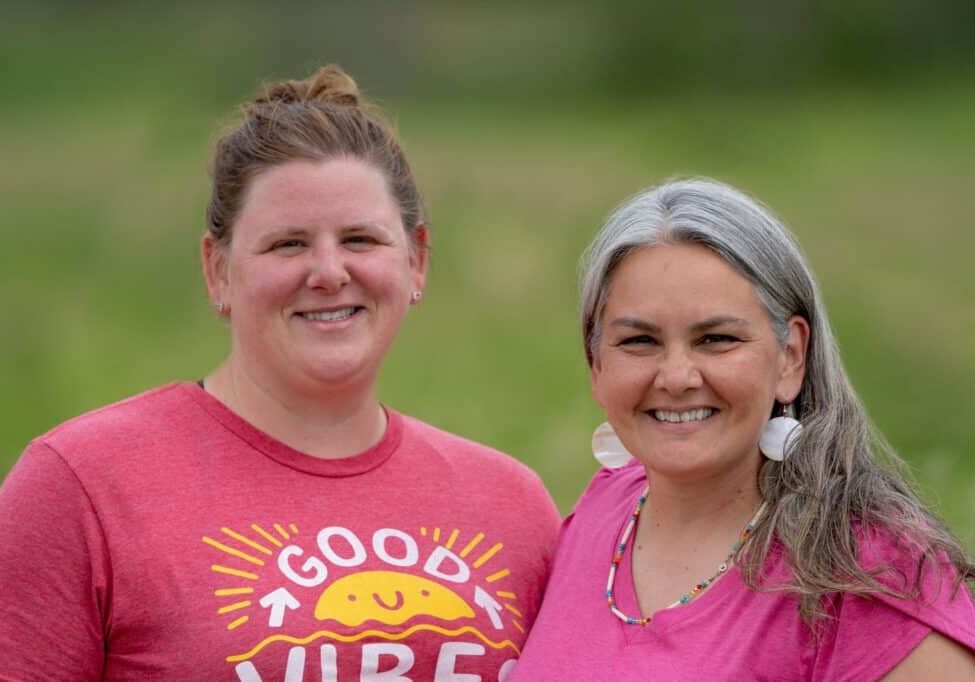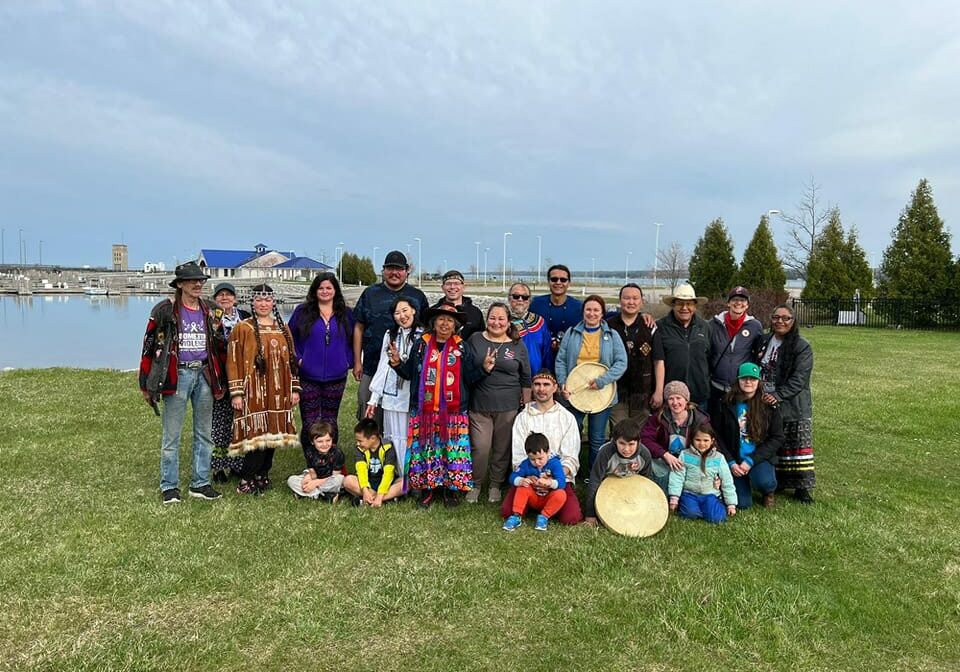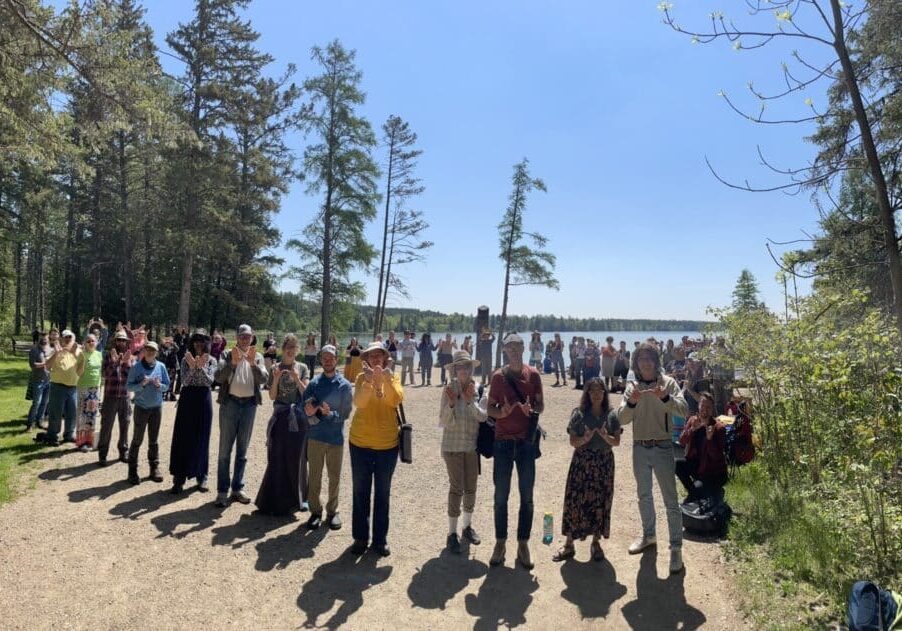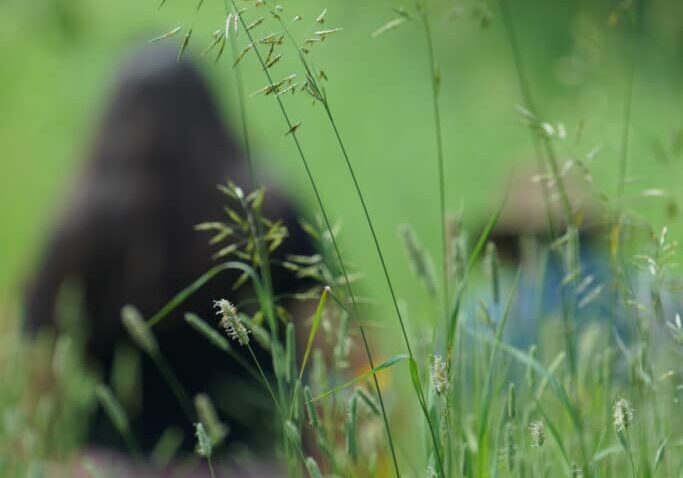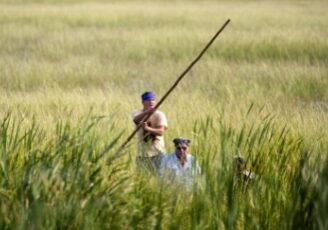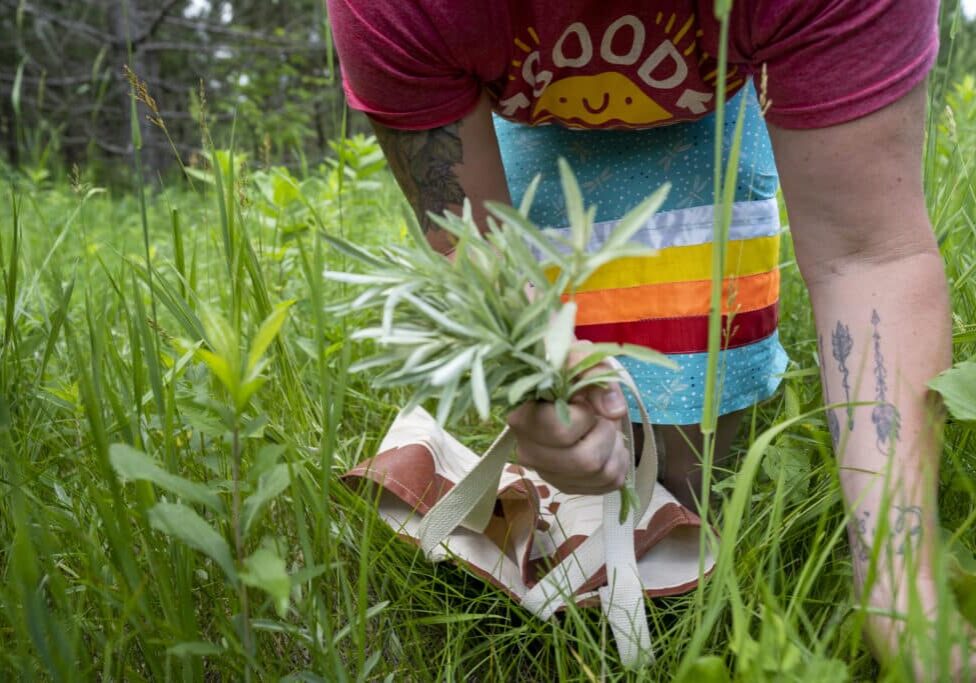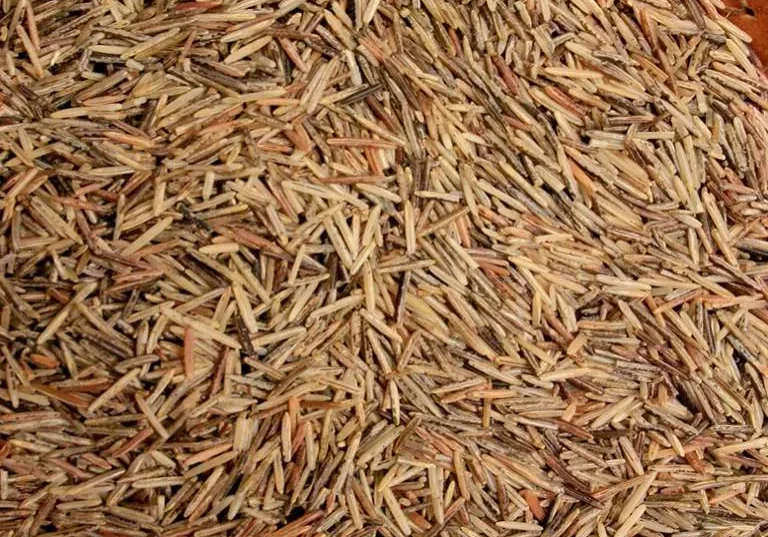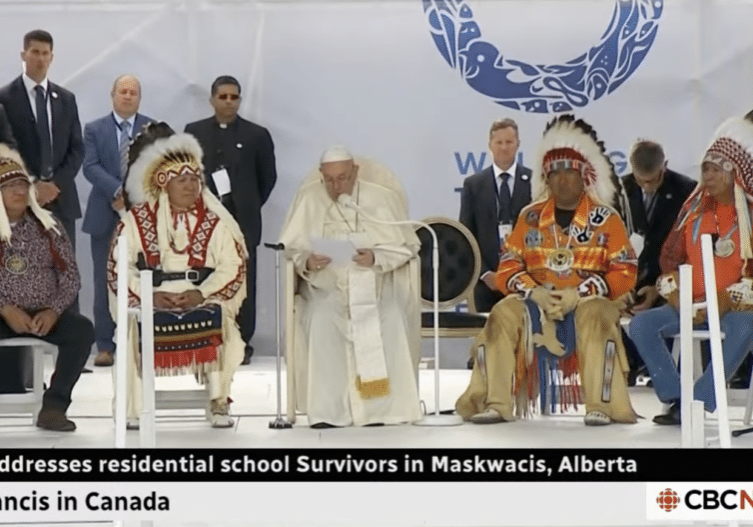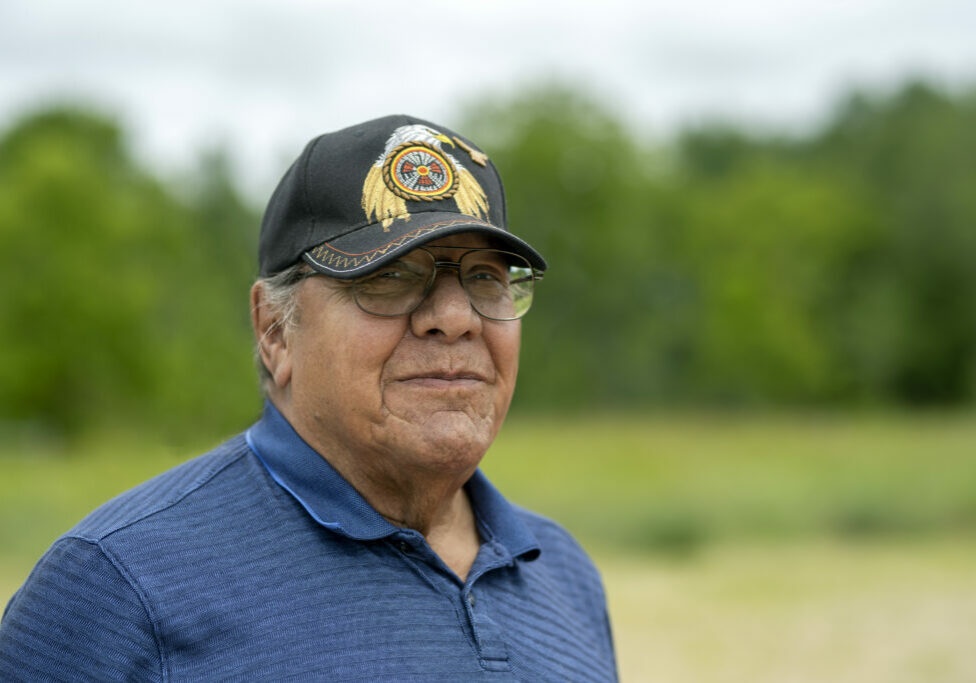Resources at Niibi
The Niibi Center aims to protect and preserve Anishinaabe culture
through the collection and sharing of wisdom and knowledge.
- All
- Anishinaabe Law Conference Videos
- Current Events
- External Press
- Niibi Posts
Language Revitalization on White Earth
Language is one of the most precious assets of Indigenous cultures around the world. This is especially true here on Turtle Island, where targeted efforts of genocide including boarding schools and forced assimilation have left many Native languages floundering or outright lost.
Indigenous Arctic Leaders and Great Lakes Tribes Gather to Protect Water
White Earth tribal members, along with participants from across the United States and Russia, have gathered twice this Spring for cultural and information sharing around protection of water, particularly in the context of Tribal societies, for which water is a central facet of life and culture.
Interfaith Prayer Gathering at Mississippi Headwaters
Almost exactly a year to the day after the history-making Treaty People’s Gathering, a large interfaith group returned to the Mississippi headwaters to pray and remember.
Mpls St Paul Magazine: U of M Announces New Tuition Assistance Program for Native American Students
Access to quality local education is a critical issue for many indigenous communities. The
University of Minnesota college system has recently enacted a tuition assistance program that
will allow indigenous students from Minnesota to access higher education for minimal to no
cost, a move that will hopefully empower more young Native students to attend and finish
college. The University would not have made these sweeping changes in their tuition assistance
program without many years of advocacy from Native leaders and allies throughout Minnesota.
Center for Environmental Rights: White Earth Tribal Law: Recognizing the Rights of Manoomin
Anishinaabe culture and lifeways have been greatly threatened due to settler colonialism. The 1854 and 1855 treaties between Anishinaabe tribes and the US government are supposed to protect the rights of tribal members to access their traditional foods and medicines. For Anishinaabe people, manoomin is the primary sacred food source that not only ensured the tribe’s survival historically, but is also an integral part of the prophecy which pushed the tribes to migrate to the “land where food grows on the water.” For Anishinaabe people, all of existence has it’s own spirit, including manoomin, and so the White Earth tribe decided to bestow manoomin with legal rights as a “person” or legal entity. This, and similar work in protection of our non-human relations, is crucial in the quest to protect the land and water for future generations. The Niibi Center has been a community partner with the White Earth tribe in defining the policies at a Tribal level that can enforce their declaration of the inherent rights of manoomin.
Niibi Center Updates and Call for Interviews
Autumn is a rich time here in northern Minnesota, from the vibrant colors of the fast fading trees to nourishing cultural practices like fishing and collecting/processing manoomin. It is a time to enjoy the harvest season by putting up the garden and giving gratitude for the earth’s generosity. Here at the Niibi Center, we wanted to take a moment and reflect back on some of the work we have done this year, as well as to invite and engage the community in our current projects and future work.
Spotlight on the Historical Trauma Healing Program
The Niibi Center’s Historical Trauma Healing program focuses on preserving historical information/records, sharing stories around the effects of boarding school trauma, forced removal and other generational and current manifestations of colonization, and taking steps to help individuals and the community heal from the effects of this trauma.
Updates on Line 3 Damage from Waadookawaad Amikwag – Friends of the Beaver
Many environmental activists, scientists, water protectors and Tribes warned about the possible damage that Enbridge’s Line 3 pipeline could wreak on the delicate watersheds and ecosystems of northern Minnesota. Line 3 traversed over 300 miles across the state and ran pipeline through and under at least 22 rivers and dozens of wetlands. In the process of construction, Enbridge had numerous frack-outs and aquifer breaches, only a handful of which have been reported to the Minnesota Pollution Control Agency and other environmental protection groups.
Protecting Manoomin through Anishinaabe Law
Rights of nature is a movement that seeks to give non-human relatives legal status as persons, and has gotten some traction around the world, as well as here in Minnesota. The White Earth Nation voted to give manoomin (wild rice) rights in 2019, in order to help protect wild rice and the habitats in which it grows. This legal standing is important due to manoomin’s status as not only an integral food source for Ojibwe and non-Native people in Minnesota, but most crucially because of the role manoomin plays at the center of Anishinaabe prophecy, spirituality and culture.
Food & Environment Reporting Network: The Future of Wild Rice May Depend on an Unlikely Alliance
Hoping to halt the decline of the sacred plant in northern lakes, the Ojibwe partnered with scientists who represent a historical nemesis.
Native News Online: Vatican Rejects Doctrine of Discovery
In a landmark statement made today, the Vatican formally repudiated a centuries-old theory of church decrees that endorsed the forceful seizing of Native lands and near-total destruction of Indigenous peoples.
The decrees, or “papal bulls,” underpin “The Doctrine of Discovery,” a legal concept created in a 1823 U.S. Supreme Court decision that justified the forceful seizing of Native land by European colonizers under the guise that colonizers “discovered” the land.
Speakers Announced for Upcoming Anishinaabe Law Conference
The Niibi Center, a local White Earth non-profit, is hosting our first annual Anishinaabe Law Conference June 25th and 26th. Our hope is to learn from other Tribal nations and lndigenous leaders who are currently utilizing natural law in Tribal legal systems and beyond, as well as share wisdom about Indigenous sovereignty and Treaty Rights.
